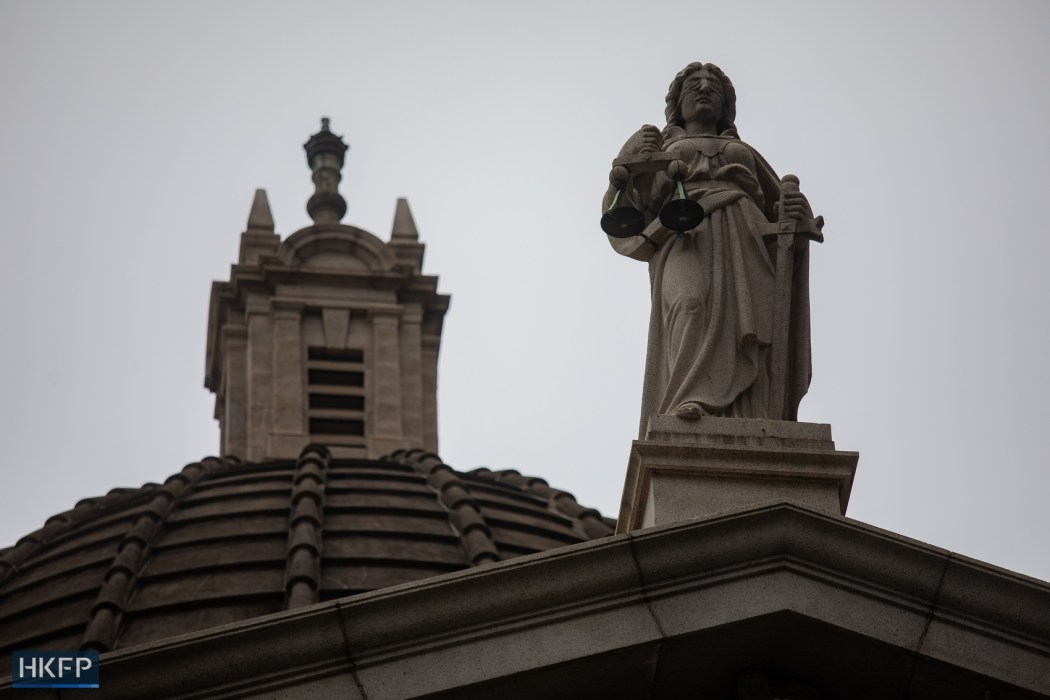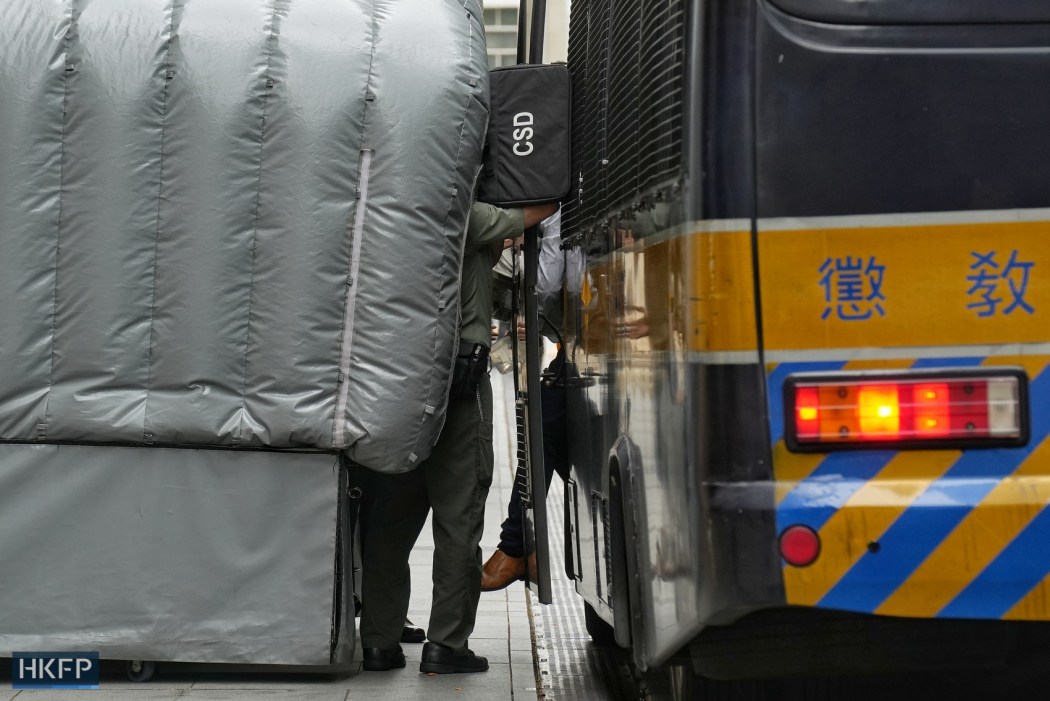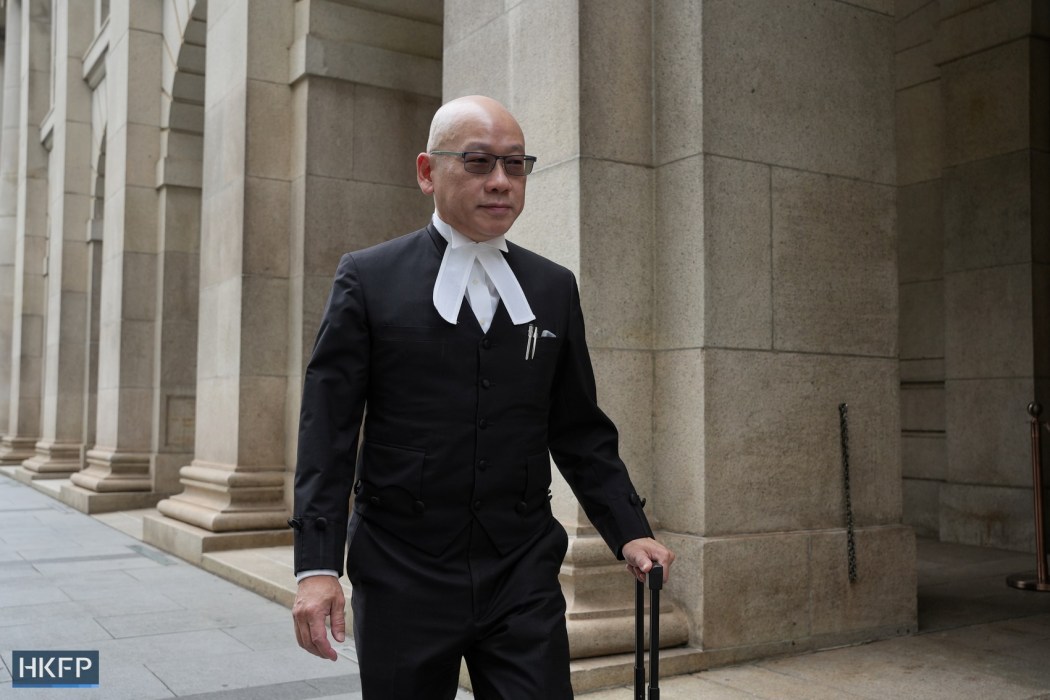This article has been corrected – click to view.
Correction 23:55, 22/8: A previous version of this article suggested guilty pleas under the security law will not be considered for jail term reductions. In fact, they may still be used in mitigation, but the final prison term for “serious” cases cannot be under the minimum total of five years.
Hong Kong’s top court has ruled that a guilty plea cannot be used in mitigation to reduce jail terms below the five years minimum for security law offences deemed “serious,” after a student who pleaded guilty to inciting secession was denied a customary sentence discount.

The Court of Final Appeal handed down its decision to Lui Sai-yu, a former Hong Kong Polytechnic University student, on Tuesday. Lui was sentenced to five years in jail last April after being accused of inciting secession over selling weapons on messaging app Telegram and posting pro-independence messages, an offence the court considered of a “serious nature.”
Lui’s challenge centres around a lower court’s refusal to grant him a one-third jail term discount. Despite pleading guilty, he was not given the reduction that is customarily applied when a defendant enters a guilty plea.
In a 31-page written judgement, the five-judge panel ruled that a provision in Article 21 of the Beijing-imposed security law – which states that offences deemed “serious” must be met with a jail term of no less than five years – is mandatory.
The top court also ruled that a list of three mitigating factors in Article 33 of the law, which spells out conditions under which a defendant can have their jail term reduced, is exhaustive. It does not take into account mitigating factors, such as a guilty plea, that depart from the article’s intention of incentivising conduct that promotes national security, the judges said.

While handing down Lui’s sentence last year, District Court judge Amanda Woodcock took a starting point of five years and six months, and, considering his plea, took a third off the jail term to arrive at three years and eight months.
But the prosecution argued that as Woodcock had deemed Lui’s national security offence “serious,” it should warrant a sentence of between five and 10 years according to the security legislation.
Woodcock then walked back the original sentence reduction to deliver a jail term of five years.
‘Untenable argument’
Lui’s case was heard at the Court of Final Appeal earlier this month, marking the first time the city’s highest court had seen a challenge to a national security sentence.
Representing Lui, Senior Counsel Robert Pang discussed Article 21 of the security legislation, which states that a person should be jailed for “not more than five years” if the offence is of a minor nature, and “not less than five years but not more than 10 years” for offences of a serious nature. It was this provision that prompted the lower court judge to revise Lui’s jail sentence upwards.

Pang said five years was a starting point, not a minimum jail sentence length for someone whose offence is deemed serious. Raising a hypothetical scenario, Lui’s lawyer said it “cannot be right” that two defendants convicted of a crime and jailed for five years – with one pleading guilty, and the other showing no remorse at all – would be handed the exact same sentence.
In the written judgement delivered on Tuesday, the judges said Pang had suggested that the article should be interpreted as “accommodating a ‘continuum’ of possible sentences without being constrained by any lower limit of a prescribed sentencing band.”
The judges called this an “untenable argument.” The provisions “prescribe in mandatory language the nature and length of the sentence imposed,” they wrote, adding that it was not the case that they were “concerned merely” for setting starting points. The words “shall be sentenced” and “not less than five years” were underlined in the judgement, which quoted the law’s text: “[T]he person shall be sentenced to fixed-term imprisonment of not less than five years but not more than ten years” for serious offences.
In discussing Article 33, which states three conditions under which an offender could have their penalty reduced, Pang said such a list was not exhaustive. The three conditions include: voluntarily discontinuing the offending act or forestalling its consequences, voluntarily surrendering and giving a truthful account of the offence, or reporting an offence committed by somebody else.

Pang had argued that the mitigating effects of a timely guilty plea should be considered.
In response, the top court ruled that the legislative purpose of the provision was “unambiguous.” Its purpose is evident from the three conditions, and is to “provide offenders and potential offenders with an incentive to desist from committing offenders, to assist the authorities in the suppression of activities endangering national security and to facilitate law enforcement,” the judges said.
Mitigating factors “unconnected with the clear rationale of that provision” should hence not apply, the judges said, adding that the three conditions were exhaustive.
In June 2020, Beijing inserted national security legislation directly into Hong Kong’s mini-constitution – bypassing the local legislature – following a year of pro-democracy protests and unrest. It criminalised subversion, secession, collusion with foreign forces and terrorist acts, which were broadly defined to include disruption to transport and other infrastructure.
The move gave police sweeping new powers, alarming democrats, civil society groups and trade partners, as such laws have been used broadly to silence and punish dissidents in China. However, the authorities say it has restored stability and peace to the city.
Support HKFP | Policies & Ethics | Error/typo? | Contact Us | Newsletter | Transparency & Annual Report | Apps
Help safeguard press freedom & keep HKFP free for all readers by supporting our team
























